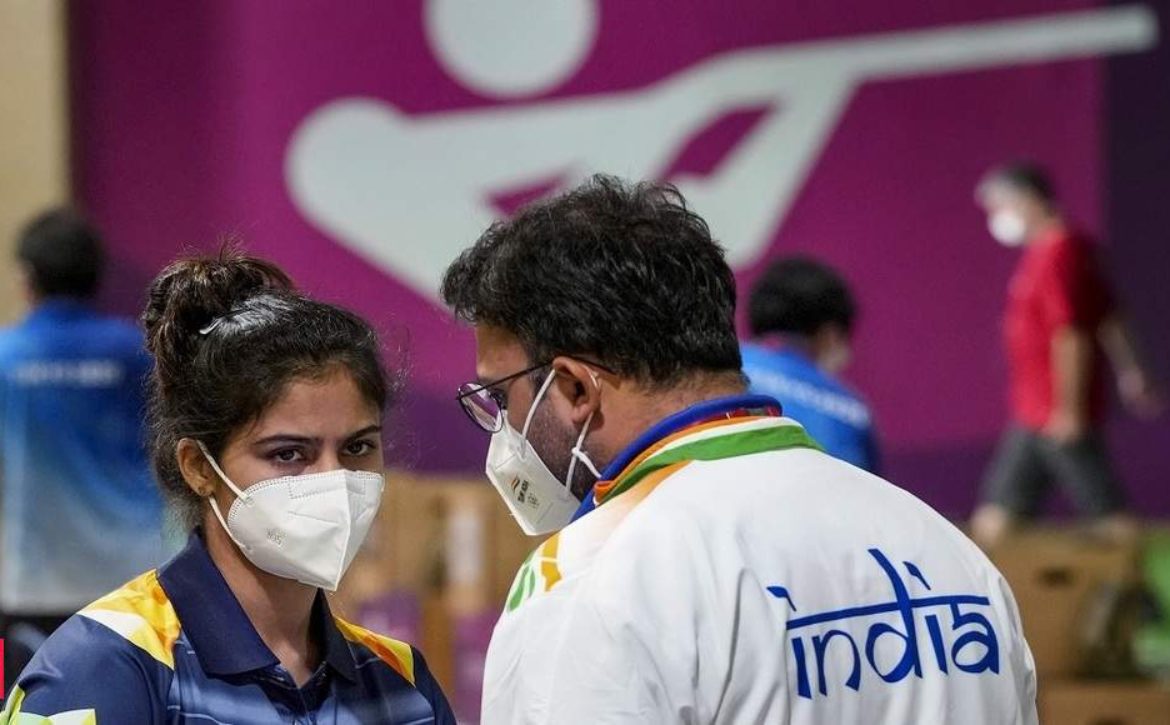
View: Our athletes deserve more sensitivity
Soon after American Olympic gold-winning gymnast Simone Biles had withdrawn from the finals of the team competition on account of mental health issues, there was a lot of support for her not just from across the world, but also from India. The general refrain was that Biles was not simply a prime-time commodity to be consumed on television. That she could break and snap, and have mental health issues makes her human.Such sensitivity, rare among Indian social media users — never mind those following sports — was refreshing. And it did not stop here. When Japanese tennis player and four-time Grand Slam champion Naomi Osaka suffered a shock defeat in straight sets in the third round this week in Tokyo, the sporting fraternity was behind the Japanese star. The argument was: these things happen.Things changed dramatically, however, when it came to our very own Manu Bhaker after she lost in 10 m air pistol qualifications. Bhaker was viciously trolled for her failure and roundly abused for ‘letting the nation down’. A gun malfunction, which can cause the athlete enormous stress, was labelled an ‘excuse’ and her reaction as ‘drama’ and ‘theatrics’.Such discriminatory treatment from Indian sports enthusiasts has always been puzzling, to say the least. And if anyone tries to point this out, most of these critics (sic) will digress and come up with the usual line with variations of their own — ‘If Fiji can win an Olympic gold, why can’t India?’While there is every reason to be constructively critical of our athletes, there is also reason to be sensitive. We need to deep dive to understand the reasons for the failure, and not simply castigate them, never mind turn abusive.In cricket, too, India hasn’t won anything of significance in the last eight years. The last ICC Trophy won was in 2013. That, however, doesn’t make Virat Kohli’s team a bad one. Reacting to trolls lashing out against swimmers Maana Patel and Srihari Nataraj failing to qualify in Sunday’s women’s and men’s 100 m backstroke respectively, former Olympian swimmer Virdhawal Khade made a similar point when he tweeted whether BCCI ever considered dropping Sachin Tendulkar or Virat Kohli each time they ‘don’t score a 100’.Coming back specifically to India’s failure in shooting, let us put things in context. Another troll victim, Saurabh Chaudhary shot 586 in the qualification round of the 10 m air pistol in a very strong field of 60 shooters and topped the charts to make the final. One can only notch up such a score if one is at one’s peak.Second, he can only shoot 23 consecutive tens if he is good enough at the highest level. Chaudhary, thereafter, had a poor final by his own standards. The usually deadpan shooter looked distraught at the end of the first series when he had shot a poor 47.2. What are we to make of this performance? Is he not good enough? Or would it be fair to suggest that he needs to do some more work on his mental fortitude when he shoots at major finals?‘In a world cup, the thought is that we have another chance in two months,’ said one of India’s coaches. ‘At the Olympics, the thought is that we might never again have a chance.’ Is it this realisation that adds to the pressure on many Indian athletes resulting in their underperforming? And if that’s the case, shouldn’t we look towards a solution rather than damning these athletes?If the world — and India — can be sensitive to Biles and her issues with mental health, why are our athletes treated any different? In Tokyo, table tennis players Manika Batra and Sharath Kamal who didn’t ‘make it’ were great. Back home, though, all the news was about how Batra had ‘refused’ to let the national coach sit in her corner and that she should be show-caused. Why not have a quiet word with her first and understand the real issue? Why label the athlete guilty before even trying to figure things out? If Biles could walk out of the final — which cost US a gymnastics gold — and yet be supported, why can’t our athletes, who aren’t as accomplished or successful, be shown encouragement and the same kind of support?We, in India, need more restraint. A decade earlier, we would come to the Olympics to simply make up the numbers. Now we come to win medals. When we don’t win, criticism is not just welcome but necessary. But we must remember that from being also-rans to becoming contenders is a major road travelled — and that needs to be further travelled. More sensitivity and support would make this journey quicker and easier.
Read More


